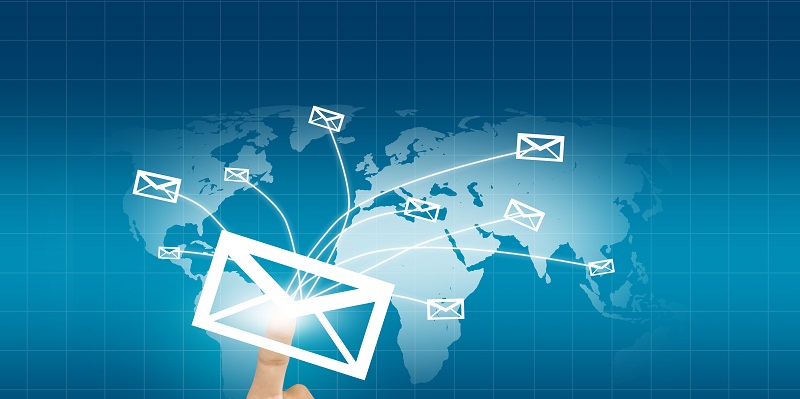In today’s digital landscape, businesses are constantly seeking innovative ways to effectively engage with their customers. The emergence of AI-powered email automation tools has revolutionized the realm of customer engagement, providing businesses with a plethora of opportunities to enhance their marketing strategies. This article will delve into the top AI email automation tools in 2023 that are transforming the way businesses connect with their audience.
Mailchimp: Leading the way in AI-driven email marketing
Mailchimp has long been hailed as a leader in the field of email marketing. With its rich history and expertise, Mailchimp continues to innovate with AI-driven features that empower businesses to maximize their customer engagement efforts. In 2023, Mailchimp’s AI capabilities revolutionize email marketing strategies, using advanced data analytics and machine learning algorithms to personalize content, suggest optimal send times, and segment audiences for targeted campaigns.
SendGrid: A robust email marketing platform with AI capabilities
Following its merger with Twilio, SendGrid now offers a robust email marketing platform with advanced AI capabilities. With AI-driven tools at its core, SendGrid empowers businesses to create and optimize email campaigns, leveraging machine learning algorithms to analyze customer behavior and preferences. The platform provides valuable insights for improved customer targeting, personalized content creation, and highly effective email delivery, resulting in enhanced engagement and conversions.
HubSpot: AI-powered email marketing features
HubSpot’s marketing automation platform incorporates AI-powered email marketing features that elevate customer engagement to new heights. With intuitive workflows and advanced analytics, HubSpot enables businesses to automate personalized email campaigns based on customer behavior, preferences, and stage in the buyer’s journey. Leveraging AI, HubSpot enhances email deliverability and open rates, resulting in more meaningful interactions and a higher return on investment (ROI).
ActiveCampaign: Combining Email Marketing with Automation and CRM
ActiveCampaign is a pioneer in integrating email marketing with automation and customer relationship management (CRM). By incorporating AI into its platform, ActiveCampaign enables businesses to create dynamic and personalized email campaigns that resonate with their audience. Through the use of predictive analytics and machine learning, ActiveCampaign identifies customer intent, automates the timely and relevant delivery of emails, and nurtures leads throughout their lifecycle, resulting in enhanced customer engagement and conversion rates.
Pardot: Leveraging AI for B2B marketing automation
As part of Salesforce, Pardot is a comprehensive B2B marketing automation tool that leverages AI to enhance email marketing efforts. Pardot’s AI capabilities assist businesses in identifying high-quality leads, automating lead nurturing emails, and creating personalized email campaigns tailored to the unique needs of B2B customers. By harnessing the power of AI, Pardot enables businesses to build stronger customer relationships, increase customer loyalty, and drive revenue growth.
GetResponse: Integrating AI into email marketing
GetResponse stands out as an all-in-one marketing platform that seamlessly integrates AI into its email marketing capabilities. With advanced segmentation, behavior-based automation, and predictive content, GetResponse empowers businesses to deliver highly targeted and personalized email campaigns that resonate with their audience. By utilizing AI, GetResponse optimizes email send times, improves open and click-through rates, and drives higher conversions, ultimately increasing customer engagement and revenue.
Selligent Marketing Cloud
Selligent Marketing Cloud is a powerful marketing automation platform that harnesses AI to deliver hyper-personalized email campaigns. By leveraging AI algorithms, Selligent Marketing Cloud analyzes consumer behavior, interests, and preferences, enabling businesses to create individualized email experiences for each customer. This personalized approach enhances engagement, builds trust, and drives customer loyalty, resulting in increased customer lifetime value and overall business success.
Omnisend is an email marketing platform specifically tailored for e-commerce businesses. With its integration of AI capabilities, Omnisend enables businesses to automate and optimize their email campaigns in line with customer behavior, preferences, and purchase history. The platform offers personalized product recommendations, abandoned cart recovery emails, and smart segmentation, allowing e-commerce businesses to effectively engage their audience and drive higher conversions.
Klaviyo specializes in email marketing for e-commerce businesses and integrates AI to enhance customer targeting and engagement. With Klaviyo’s AI-powered tools, businesses can create hyper-targeted email campaigns, automate personalized flows, and generate dynamic product recommendations based on real-time customer data. By leveraging AI, Klaviyo effectively boosts open and click-through rates, increases conversions, and cultivates long-term customer relationships.
By 2023, the top AI email automation tools have revolutionized how businesses engage with customers. Platforms such as Mailchimp, SendGrid, HubSpot, ActiveCampaign, Pardot, GetResponse, Selligent Marketing Cloud, Omnisend, and Klaviyo lead this transformative trend. These tools enable businesses to create personalized, timely, and relevant email campaigns, facilitating meaningful connections, higher engagement, and increased conversions for business success. As the AI landscape evolves, businesses that use these tools will gain a competitive edge in establishing lasting customer relationships.

